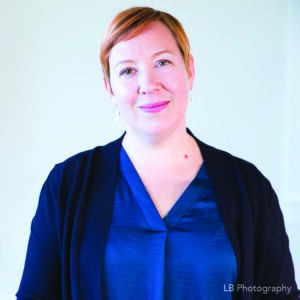by Sarah Rutledge Fischer
Dear Allie,
We need to talk. You seem like a really nice lady, but I’ve got to call you out on something. In this culture, failing to actively include the perspective of queer folx perpetuates heteronormativity; failing to actively include the viewpoints of women perpetuates the patriarchy; failing to lift up the voices of the Black and Indigenous People of Color perpetuates the stranglehold of white supremacy.
You’re good on the first two, but you’ve got work to do on third. Do better.
Yours,
Living Intersectionally
Dear L.I.,
You are absolutely right. Thank you for calling me out. To fail to actively include BIPOC (Black and Indigenous People of Color) in the conversation about LGBTQ+ issues is to perpetuate a culture that discounts not only the trauma and injuries of BIPOC in this country, but also their voices, accomplishments, and basic humanity. I will work to do better.
Audre Lorde said, “There is no such thing as a single-issue struggle because we do not live single-issue lives,” but for far too long, mainstream LGBTQ+ culture has ignored not only the issues faced by QTBIPOC (Queer and Transgender Black and Indigenous People of Color) but also their great contributions to so many issues central to the LGBTQ+ community. From the whitewashing of Stonewall to the backlash against the 2017 introduction of a black and brown stripe on the Philly Pride flag, examples of how the LGBTQ+ communities have failed QTBIPOC are not hard to find. As George Johnson wrote in a recent piece for NBC News, “Although we all share the same oppressors, white queer folk must come to terms with the fact that they play a role in the harm experienced by Black and Brown queer folks.” We can do better.
So, speaking as a white queer woman to other members of the queer community who benefit from the systems of white supremacy, I thought I’d share some tips I’ve gathered on how to be a better ally while doing the work to identify and dismantle internalized and systemic racism.
- Lean into discomfort. Unraveling and discarding layers of privilege can leave you feeling exposed, but persevere. This feeling doesn’t mean you are on the wrong path.
- Recognize that the way racism is embedded in our culture is not always overt. If someone calls out racist behavior, avoid defensiveness. Listen, examine your behavior, and look for solutions.
- Never assume that BIPOC are available to teach you about their culture or the effect of yours. Value the difficult labor of this work and treat those who undertake it professionally.
- Remember that, even within cultures, no two people have the same experiences, struggles, or histories. Do not use the positions of one BIPOC as a challenge to the position of another.
- Be prepared for exclusion. BIPOC have suffered and continue to suffer harm in white-centered systems and environments. Recognize the necessity and value in their taking time apart from white spaces.
- Respect the different burdens of oppression carried by different people based on their intersectional identities. We can learn from the experiences of others without needing to compare burdens.
These are just a beginning, and I hope that many of my readers are right beside me, leaning into the long, hard work of moving towards true allyship. And, of course, I invite my QTBIPOC readers to write in with questions and issues but acknowledge that it is not their responsibility to ensure that I actively include the full diversity of our community in my responses.
That should get us started.
Your friend,
Allie
To submit your own question, email Allie at Allie@focusmidsouth.com.
Focus Mid-South reserves the right to edit letters for length and clarity.



